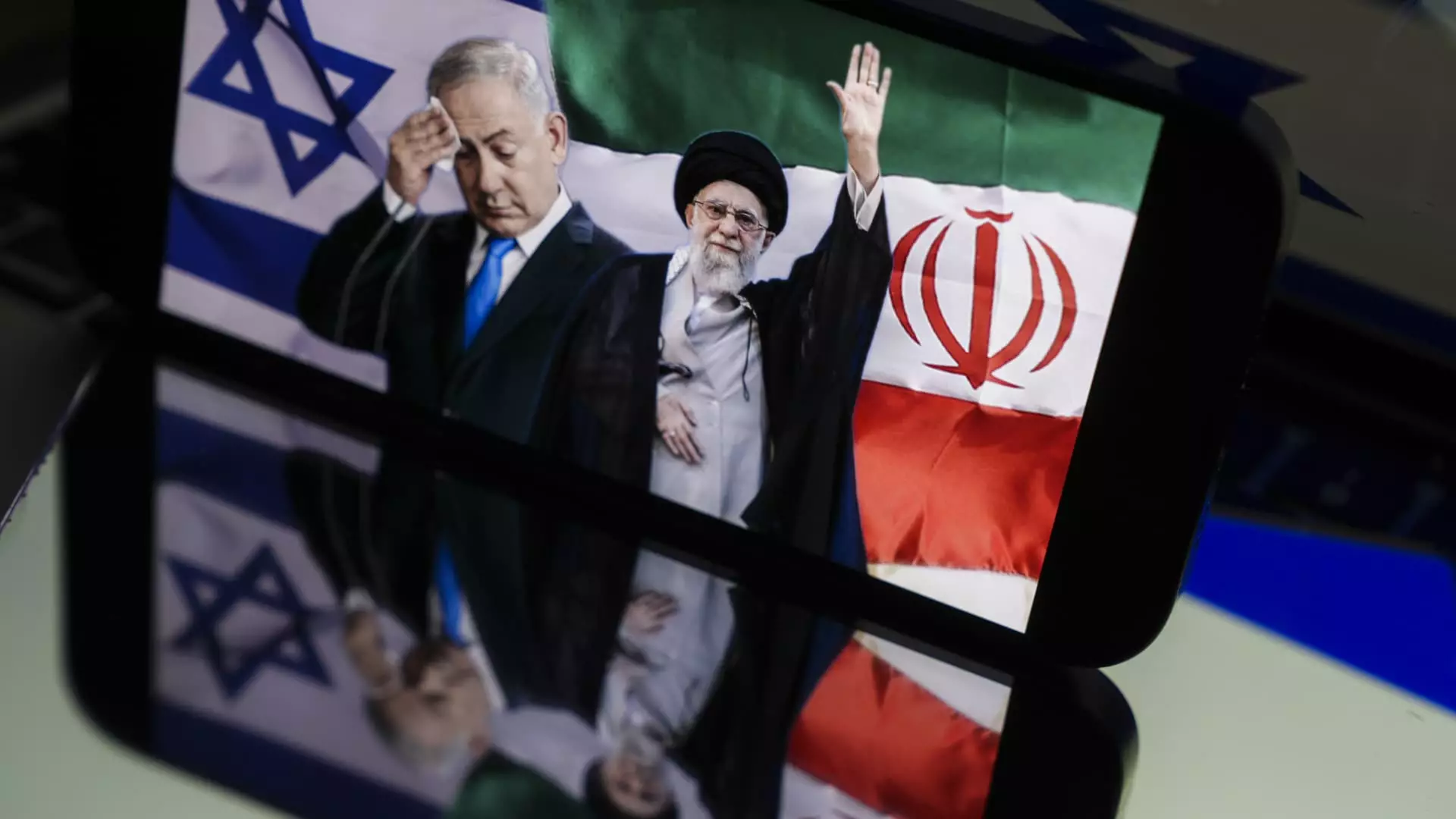The recent clashes in the Middle East exemplify the perilous ripple effects that war-induced disruptions can inflict on global energy markets. Iran’s oil minister’s condemnations of war as a destabilizing force reveal a guarded recognition that geopolitical conflicts, especially in oil-rich regions, threaten not just regional stability but the entire global economy. Yet, these warnings often fall on deaf ears, drowned out by the noise of political posturing and national interests. War is not just a tragic tragedy; it is an unpredictable catalyst that upends meticulously balanced supply-and-demand dynamics, creating chaos where there should be stability. It is a reckless gamble that often appears to be driven more by short-term political calculations than genuine concern for global economic health.
When conflicts flare, the immediate consequence is a surge in crude prices—a development that benefits certain producers but comes at the expense of consumers worldwide. This artificial inflation of oil prices underscores a core flaw in our reliance on resource geopolitics: the persistent belief that conflicts temporarily boost national interests without profound long-term consequences. But history teaches us that the costs extend far beyond the battlefield, fueling inflation, stifling economic growth, and creating a cycle of dependence on volatile regions. War, therefore, is not a tactical tool to be wielded casually; it is a reckless hazard that imperils the stability of a fragile global economic system.
Iran’s Strategic Position and the Risks of Political Guestimates
Iran’s pivotal role within OPEC underscores the precariousness of relying on nation-states with turbulent political landscapes. As the third-largest OPEC producer, Tehran’s military confrontations and regional brinkmanship amplify the uncertainty that already clouds the oil markets. Despite Iran’s attempts to diversify its exports—oftentimes resorting to shadow fleets and off-the-grid transactions—the core issue remains: Iran’s future is tightly intertwined with its nuclear ambitions and regional confrontations.
The ongoing standoff over Iran’s nuclear program exemplifies how diplomacy often cedes ground to brinkmanship, exacerbated by external sanctions and internal political turbulence. Western sanctions have—notably—crippled Iran’s ability to export crude via formal channels, rendering the country vulnerable to black markets and clandestine operations. These tactics—while facilitating Iran’s survival in a hostile international environment—only deepen the overall instability. The risk is not solely that Iran might resume nuclear activities but that its regional alliances and military actions could spiral out of control, igniting conflicts with far-reaching consequences. Relying on diplomacy to resolve these tensions is admirable, but in practice, it often appears fragile and precariously dependent on the shifting sands of political will.
The Illusion of Market Self-Regulation in the Face of Geopolitics
Many analysts, including experts like Bob McNally, warn that unpredictable geopolitical risks—what they call “Black Swans”—are the primary threats to stable oil markets. This skepticism stems from a sobering reality: markets are not immune to the seismic jolts of conflict, especially when key producers like Iran are embroiled in unresolved disputes. The notion that supply and demand alone determine prices becomes naive in a world where geopolitical events can dramatically distort the outlook overnight.
The temporary easing of tensions, such as the ceasefire between Iran and Israel, provides a fleeting breath of relief, but the underlying issues persist. As long as Iran remains under sanctions, its ability to export crude remains compromised, and the country remains vulnerable to further escalations if diplomatic efforts falter. The U.S. sanctions, while intended to pressure Iran into negotiations, inadvertently bolster black-market operations, contributing to the overall disorder in global oil supply chains.
It’s no longer sufficient to think of the energy market as a self-correcting mechanism—particularly when political machinations and regional conflicts distort fundamental supply-and-demand laws. The risks are far too embedded in the geopolitics of the Middle East to be discounted, and the illusion of market stability based on diplomacy alone is dangerously naïve. The global economy must grapple with the reality that oil prices will remain volatile until these geopolitical tensions are resolved—or until the world accepts that some conflicts will always cast long shadows over energy markets.
The reckless reliance on conflict as a lever for national interests reveals a fundamental failure to prioritize global stability and economic resilience. Instead of viewing war as an inevitable or strategic tool, policymakers should recognize its destructive potential and work toward a diplomatic framework that respects both regional sovereignty and international peace. At the same time, energy markets demand a more ethical, forward-thinking approach—one that recognizes that stability in oil supplies should not depend on geopolitical chaos.
The global community must embrace the understanding that war and disruption are not sustainable solutions—they are gambles with devastating consequences. Our dependence on volatile regions such as the Middle East is a ticking time bomb that threatens to destabilize entire economies. The path forward requires a collective commitment to de-escalation, diversification of energy sources, and diplomatic engagement that prioritizes peace over conflict. Only then can we begin to untangle ourselves from the dangerous grip of geopolitics-driven oil markets and build a more resilient global economy rooted in stability and mutual respect.

Leave a Reply